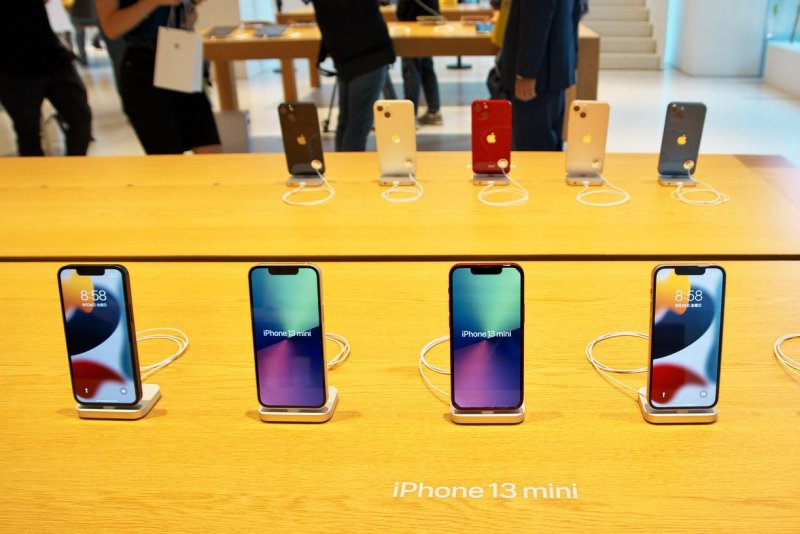1 of 2 | Apple announced Wednesday that iPhone users in Arizona can now upload virtual IDs by using the wallet app. |
License Photo
March 23 (UPI) -- iPhone users in Arizona now are able to upload their driver's licenses or state identification cards, Apple announced Wednesday. This makes making Arizona the first state to allow virtual IDs in certain circumstances.
The virtual IDs won't work at traffic stops, but travelers can use them to pass through security at Sky Harbor International Airport in Phoenix.
"We're thrilled to bring the first driver's license and state ID in Wallet to Arizona today, and provide Arizonans with an easy, secure, and private way to present their ID when traveling, through just a tap of their iPhone or Apple Watch," Jennifer Bailey, Apple's vice president of Apple Pay and Apple Wallet, said in a press release.
"We look forward to working with many more states and the TSA to bring IDs in Wallet to users across the U.S."
Users can upload and save their ID using their iPhone's wallet app. Several other locations -- Including Connecticut, Georgia, Iowa, Kentucky, Maryland, Oklahoma, Utah, Colorado, Hawaii, Mississippi, Ohio and Puerto Rico -- are preparing to introduce the feature.
To upload, users will be asked to take a selfie and scan their plastic card.
The adoption of virtual IDs is part of a bigger push from Apple to make credit cards and IDs obsolete by popularizing virtual equivalents on iPhones. Apple Pay is the top contactless mobile payment system nationwide, with 43.9 million users in 2021, TechCrunch+ reports.
According to confidential documents obtained by CNBC in November, the company is not helping states pay for the cost of establishing and administering a virtual ID program.
Apple will retain sole discretion over several key aspects of the rollout, an arrangement that is raising concerns among some industry insiders.
"I don't know of any other example where government-owned systems and identity credentials were made available for commercial purposes in this manner," financial technology consultant Jason Mikula told CNBC.















